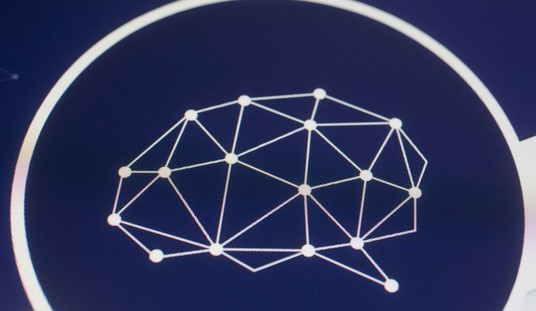Her point is simple. Given how quickly we’ve seen the virus spread here in the U.S. with our own eyes, it should have been apparent immediately to health authorities in China that it was being passed between humans.
And no doubt it was apparent. The Chinese Communist Party has an excuse for not reporting it, though: It’s a sinister totalitarian outfit whose first impulse in a crisis is to protect its own prestige by covering up failures.
What’s the WHO’s excuse?
Preliminary investigations conducted by the Chinese authorities have found no clear evidence of human-to-human transmission of the novel #coronavirus (2019-nCoV) identified in #Wuhan, #China🇨🇳. pic.twitter.com/Fnl5P877VG
— World Health Organization (WHO) (@WHO) January 14, 2020
The group’s director of health emergencies claims they actually did a pretty fantastic job:
Ryan said WHO alerted the world to the new disease on January 5, allowing health systems around the world, including the US, to begin activating their incident management systems that week.
“In the initial reports, in which there were no mention of human to human transmission, was a cluster of atypical pneumonia or pneumonia of unknown origin,” he said.
Ryan argued that it was “remarkable” that a cluster of cases was detected in Wuhan, China, because there are “millions and millions of cases of atypical pneumonia around the world” each year and “sometimes it’s very difficult to pick out a signal of a cluster of cases” in the middle of flu season.
Weeks later the group was still lavishing praise on China for its eventual, far too late lockdown of Wuhan. Am I mistaken or have they still not harshly scolded the Chinese government to this day for its ruinous early dissembling about the outbreak?
Anyway, the fight over funding is destined to become a quasi-partisan battle. It’ll split largely along partisan lines, but I think the deeper divide is between Democrat-aligned internationalists…
NEW: Former President Carter on WHO funding:
“I am distressed by the decision to withhold critically needed US funding for the WHO, especially during an international pandemic. WHO is the only international organization capable of leading the effort to control this virus.”
— NBC News (@NBCNews) April 15, 2020
Halting funding for the World Health Organization during a world health crisis is as dangerous as it sounds. Their work is slowing the spread of COVID-19 and if that work is stopped no other organization can replace them. The world needs @WHO now more than ever.
— Bill Gates (@BillGates) April 15, 2020
…and Republican-aligned China hawks, especially nationalists. Trump’s impulse to defund the WHO is perfectly valid but I think he may end up backing off. For one thing, the bad press has already begun about him depriving the WHO of money needed to fight diseases like polio, conduct vaccination programs, and improve nutrition abroad. Some Republicans aren’t thrilled either (albeit anonymously) because they think it’s poor strategy, knowing that cutting off funding is a bad way to influence a group. “We need value on our investment,” said a Republican aide to CNN. “If a partner is not performing in the way it is intended to perform, we need change. From an oversight perspective, this is about performance and delivery on results.” Trump’s own CDC chief sounded conspicuously reluctant to criticize the WHO in interviews this morning, possibly fearing that a full fracture of the relationship will deprive the U.S. of data it needs for a more effective response.
Potentially there’s even a nationalist critique to be had here. Namely, that by squabbling with the WHO, Trump is distracting the public from China’s misdeeds. Noah Rothman:
This is a unique opportunity to impose costs on Beijing for its reckless actions and totalitarian governance. Rarely does a political narrative have such an unambiguous heavy, which is why it’s so bizarre to see the president not only take his eye off the ball but engage in misdirection.
By shifting focus onto the WHO, the president has allowed European governments, which are already prone to spineless equivocation, to protest the martyrdom of an international institution that does serve a vital purpose amid a global pandemic. By failing to make a distinction between the WHO’s medical mission and its political leadership, Trump has muddied the case against the institution and thrown China’s reflexive defenders a lifeline. By threatening the WHO’s funding—which is appropriated by Congress and disbursed primarily through grants—he’s plunged the nation into a largely superficial debate over consequences that are unlikely to fully materialize. And by withdrawing American support for this organization, even just rhetorically, he’s only likely strengthened its reliance on revisionist powers like China.
*Is* this a “unique opportunity to impose costs on Beijing,” though? My assumption is that Trump picked a fight with the WHO in large part because he’s decided he’s in no position to pick one with China. The Times reported a few days ago that Trump’s economic advisors pushed back on aides who wanted to blame China publicly for the pandemic because they “worried a tough approach toward China could scuttle a trade deal that was a pillar of Mr. Trump’s re-election campaign.” And that’s not all. “Mr. Trump and other senior officials were wary of further upsetting Beijing,” the Times continued. “Besides the concerns about the impact on the trade deal, they knew that an escalating confrontation was risky because the United States relies heavily on China for pharmaceuticals and the kinds of protective equipment most needed to combat the coronavirus.”
Apart from a brief stretch when the president started using the phrase “Chinese virus” to antagonize them, his public pronouncements about China’s response have sounded a lot like, well, the WHO’s:
https://twitter.com/realDonaldTrump/status/1220818115354923009
I think he’s looking to whack the WHO because he’s concluded it’s too risky to whack Beijing. Here’s Birx on “The View” this morning wondering how the WHO missed an epidemic exploding right before its very eyes.








Join the conversation as a VIP Member